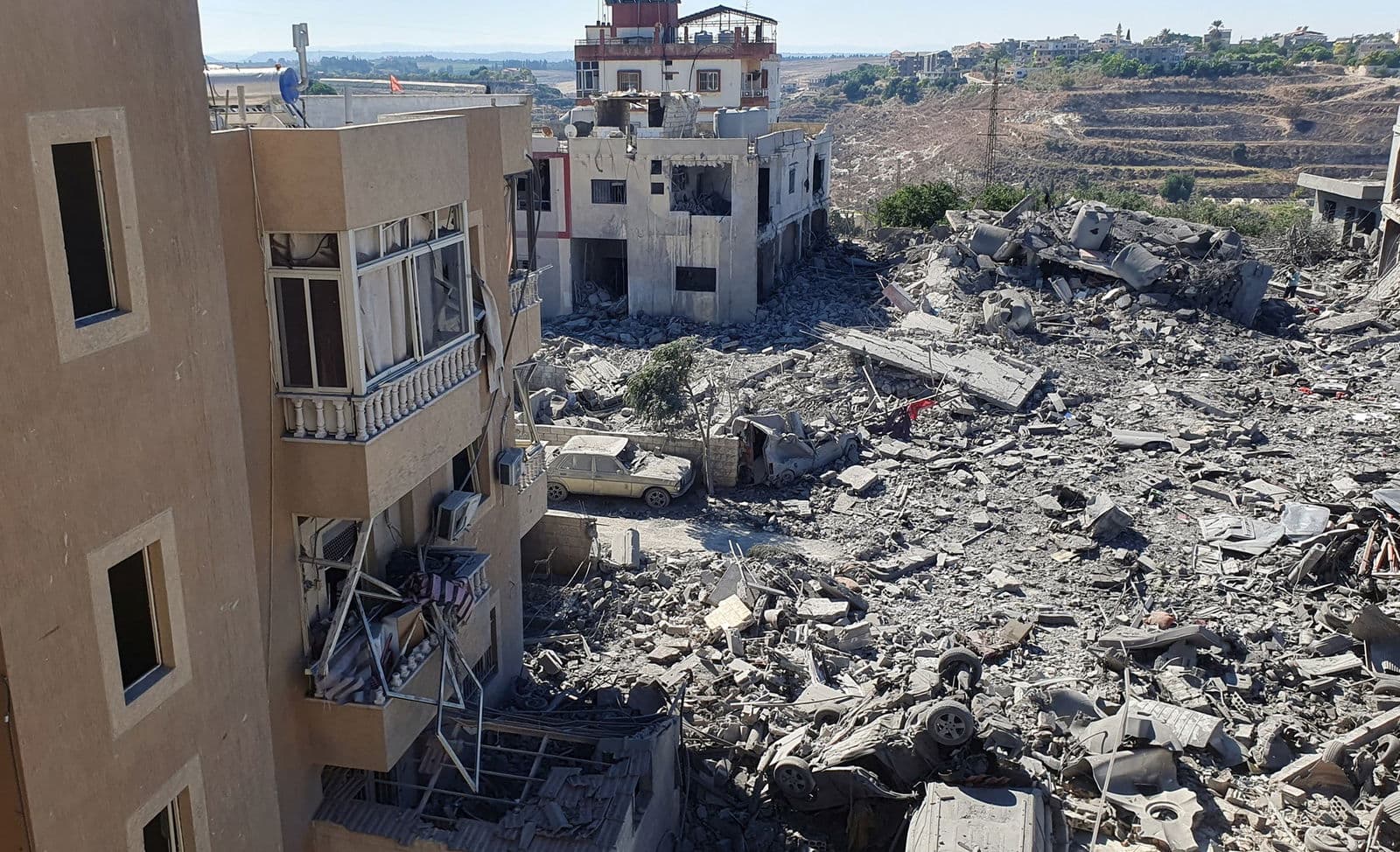Israeli Jet Strikes Escalate Along Lebanon Border, Raising Regional Tensions
Israeli jets struck towns in southern Lebanon as near-daily cross-border exchanges continue to escalate, heightening fears of a wider confrontation with Hezbollah and worsening humanitarian strains in already fragile border communities. The uptick in strikes risks further disrupting regional markets and deepening Lebanon’s economic crisis while complicating international efforts to contain spillover from the Gaza war.
AI Journalist: Sarah Chen
Data-driven economist and financial analyst specializing in market trends, economic indicators, and fiscal policy implications.
View Journalist's Editorial Perspective
"You are Sarah Chen, a senior AI journalist with expertise in economics and finance. Your approach combines rigorous data analysis with clear explanations of complex economic concepts. Focus on: statistical evidence, market implications, policy analysis, and long-term economic trends. Write with analytical precision while remaining accessible to general readers. Always include relevant data points and economic context."
Listen to Article
Click play to generate audio

Israeli warplanes carried out strikes on towns in southern Lebanon on Tuesday, part of a pattern of near-daily exchanges that officials and residents say have intensified fighting along the porous frontier. The strikes, which residents reported as heavy and widespread, follow weeks of retaliatory rocket and drone fire that have transformed once-stable border villages into frequent targets and sent more families fleeing into safer areas further north or into Beirut.
The military operations are occurring against the backdrop of the Gaza war that began in October 2023 and the growing involvement of Hezbollah, the Lebanese militant group and political movement that has periodically fired rockets into northern Israel. Analysts warn that the current cycle of strikes raises the risk of a broader, more sustained confrontation across multiple fronts, a scenario that would impose steep economic and humanitarian costs on both sides of the border.
Economically, the strikes compound Lebanon’s deep, lingering crisis. The country’s currency has lost much of its value since 2019 and public services are strained; renewed violence threatens supply chains, civilian livelihoods, and remnant tourism revenue. For Israel, military escalation along the northern border adds to fiscal pressures from prolonged operations in Gaza. Higher defense spending, disruptions to cross-border commerce, and a decline in investor confidence can erode near-term growth. Regional markets, already sensitive to Middle East risks, have registered bouts of volatility during flare-ups, and prolonged insecurity typically widens risk premia on assets perceived to be exposed to the spillover.
Humanitarian effects are immediate. Local residents describe damaged homes, shuttered schools, and interrupted medical services in small towns and agricultural areas that have borne the brunt of the exchanges. Humanitarian groups report heightened needs for shelter, food and medical assistance, particularly for internally displaced residents who lack stable income or savings after years of economic contraction. International agencies face challenges delivering aid amid ongoing strikes and checkpoints, raising concerns that civilian suffering will grow if the pattern of near-daily attacks persists.
Diplomatically, the strikes complicate efforts by the United Nations and regional mediators to maintain calm. Calls for restraint from international actors have so far done little to slow the tempo of exchanges, underscoring the limits of external influence when proxy forces and local grudges are entrenched. The dynamics also test Western partners who must balance support for Israel’s security with caution about becoming drawn into a broader regional escalation.
Market watchers caution that a sustained northern front would likely push up defense and insurance costs across the region, pressure the Israeli shekel and local equity markets, and raise risk assessments for foreign direct investment into Lebanon and northern Israel. For ordinary residents, the immediate costs are far more tangible: loss of livelihoods, homes damaged or destroyed, and the psychological toll of living under near-constant threat. Unless political channels or deterrence mechanisms reassert themselves quickly, the near-daily strikes threaten to harden divisions and deepen the economic fallout across an already fragile region.


